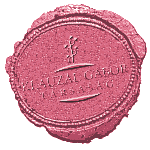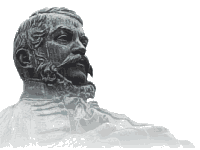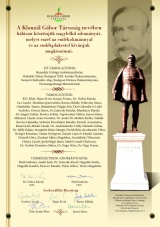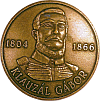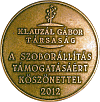Gábor Klauzál Society
I. Gábor Klauzál
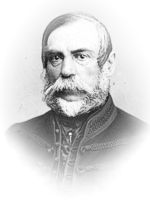 Gábor Klauzál (18 November 1804, Pest 3 August 1866, Kalocsa) Politician, lawyer, minister, and landowner in Kistétény |
From 7 April to 10 September 1848 he was the Minister of Agriculture, Industry and Economy in the first Hungarian constitutional government. He represented moderate political views and supported consensus politics. When the conflicts with the Court of Vienna sharpened and the outbreak of the War of Independence was threatening in September 1848, he resigned and retired. His nightmares came true when Hungary was invaded by Russian troops dragging the whole country into hopeless battles. General Görgey capitulated at Világos to the Russians in September 1849. Reprisals were taken on the Hungarian army and politicians. Gábor Klauzál was arrested and investigated by the Austrian military court. His notes, personal documents and letters were confiscated and destroyed. He was placed under police custody. In the 1850's he bought a vineyard in Kistétény to withdrew there during the summers.
A few years later, he became actively involved in politics again. In 1861 and 1865 he was the representative of the Town of Szeged in the Parliament by the side of Ferenc Deák. He played an important role in the preparation of the “Compromise” (Ausgleich, Kiegyezés, 1867), the political treaty between Austria and Hungary.
Gábor Klauzál's first wife was Mária Antónia Prezetska, a widow. No child was born during their twenty years of marriage. Mária died in pneumonia in 1848, and Klauzál was sorely tired by his wife's death.
In 1853, he married his second wife, Emma Schmidt, the former bride of József Nagysándor (1804[?]–1849), General of the Hungarian army martyred at Arad in October 1849. Three children were born from their marriage: Emma (1855), Gábor (1857) and Mária (1859). Ferenc Deák was the godfather of all three of them. This was a token of Klauzál and Deák's common views and close friendship. According to the local traditions, Deák was a frequent visitor in Klauzáls house in Kistétény where he formulated the Compromise treaty of 1867 with the help of Klauzál.
During the years of the absolutism, Klauzál ran a farm in Kistétény improving fruits, grapes and roses by breeding. He established the first wine-growing society in Kistétény. Also, he was one of the first quality wine-makers in Hungary. He built a country-house and a wine-press house on his estate. He maintained the chapel of Kistétény, built by the Hugonnay counts, in good condition at his own expense. Klauzál's sponsorship was carved into a well preserved memorial stone by the members of the chapel renovation committee in 1914.
To find relief from his illness, he returned to Kistétény in 1866. In the same year, he traveled to Kalocsa for his daughter's exams where he died unexpectedly. He was buried in Szeged. At least 25,000 people attended his funeral.
Gábor Klauzál was a calm, truthful patriot and a real democrat of his time. He was a brave and thoughtful statesman with excellent talents in politics. He was a well-balanced and progressive man without any extremity. He played an important role in the preparation of the Compromise treaty and thereby prepared the way to the economic and cultural boom of Hungary at the turn of the century – though he did not live to see it. He was one of the most charismatic personality of Kistétény (today a part of Budatétény, 22nd district of Budapest).
II. The Gábor Klauzál Society
 This non-profit, civilian society was formed on 9 December 2004 in Budapest. The society was legally registered by the court in the same year, December 2004, commemorating the 200th anniversary of Klauzál's birth.
This non-profit, civilian society was formed on 9 December 2004 in Budapest. The society was legally registered by the court in the same year, December 2004, commemorating the 200th anniversary of Klauzál's birth.The society was founded with the following aims:
- To be involved in public activities, representing a moderate and calm attitude while being brave and progressive, useful for the community, and preserving values in the spirit of Gábor Klauzál (in the fields of agriculture, economy, industry, public health, the use of Hungarian language, civilian societies, culture – all that mattered to Klauzál in his life).
- To investigate, cultivate, preserve, and propagate the spiritual and historical heritage of Gábor Klauzál locally, nationally and beyond the frontier.
- To promote cooperation between various groups, societies, economic partners, local government agencies and institutions in order to discover and acknowledge the inheritance of Gábor Klauzál.
- To explore, examine and highlight specific issues of the historical past and local traditions.
- To express an opinion in the spirit of Gábor Klauzál concerning local and national issues, jurisdiction, and cultural events.
Created by Károly Dobos,
translated by Dóra Cseresnyés.
